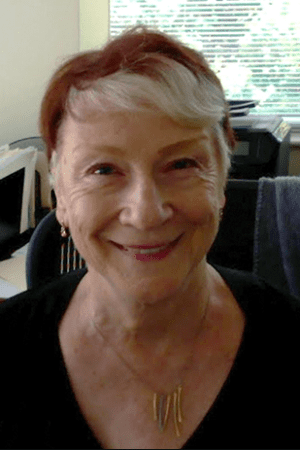Joan Mullin

Joan Mullin
Education
Ph.D. Loyola University Chicago
M.A. Northwestern University
B.A. University of Wisconsin Whitewater
My long practice and research in writing across the curriculum (WAC) and writing centers not only provided the foundation for publications interrogating writing in a variety of disciplines and cultures, but also gave me the opportunity to study ways in which writing is conceptualized and taught in other parts of the world. This gave me the opportunity for conferences, keynotes, and workshops that provided background for my most recent projects: helping colleagues at UNC Charlotte design a new writing minor and major from the ground up, and creating a book series with outstanding researchers, Terry Myers Zawacki and Magnus Gustafson. The open access series, The International Exchanges on the Studies of Writing, is an imprint of the WAC Clearinghouse and CSU Press and publishes texts that draw on writing research across national and disciplinary borders. In addition to this, my current reading indulges a long-time interest in non-western understandings of how intellectual performance cannot be separated from overall physiological, and therefore, emotional well-being.
Areas of Interest
- Somatic and Embodied Communication
- Worldwide Writing Theories and Practices
- Rhetorics Across Disciplines/Communicative Practices
Current Projects
Series co-editor with Terry Zawacki (George Mason), Magnus Gustafsson (Chalmers University, Sweden), International Perspectives on Writing Series for University of Colorado Press/WAC Clearinghouse. http://wac.colostate.edu/books/international.cfm
With J. Rieman. Transferring writing strategies across disciplines and levels: Results from a longitudinal study of writing.” In Natalia Ávila Reyes Contribuciones multilingües a la investigación en escritura: Hacia un intercambio académico igualitario (Multilingual contributions to writing research: Towards an equal academic exchange)
In Progress: A manuscript building on the current turn in education that recognizes learning is not a segregated activity of the brain, but involves the engagement and care of the whole body. Exploring the implications of this premise on the teaching and learning of writing, chapters draw together scientific research on the body, trauma, movement and mind (e.g., Fountain, Brach, Headley, Schonfeld, Sullivan, Pennybaker) to propose a theory of writing consistent with the science, and to offer existing and new pedagogies consistent with that theory.
Selected Publications:
2019. If you are going to collaborate: Three considerations. In John R. Gallagher ad DanielleNicole DeVoss (Eds.), Explanation points: Publishing in rhetoric and composition. Logan, Utah: Utah State University Press.
2017, With Carol Lind. Minding the gap: Silent subversion, quiet competence, and patient persistence. In S. Kahn, W. Lalicker, & A.Lynch-Binie (Eds.) Contingency, exploitation, and solidarity. (University of Colorado Press/WAC Clearinghouse).
2017, With Jenn Fishman, Occupying research—again/still. In B. Horner, S. M. Ryan & B. A. Nordquist (Eds.). Economies of writing. (University Press of Colorado & Utah State Press).
2017, With M. Palmquist & J. Fishman. Research exchange: A research database of writing studies. https://researchexchange.colostate.edu/ (Database collection of international writing research with periodic publication of summary, analysis and open access data.)
2014, With A. Zenger & C. P. Haviland. Import/export work? Using cross-cultural theories to rethink Englishes, identities, and genres in writing centers. In B. Horner & K. L. Kopelson (Eds.). Reworking English in Rhetoric and Composition: Global Interrogations, Local Interventions. Carbondale, IL: SIU Press.
2014, With A. Zenger & C. P. Haviland. Reconstructing teacher roles through a transnational lens: Learning with/in the American university of Beruit.. In T. Zawacki & M. Cox (Eds.). WAC and second language writings: Research towards linguistically and culturally inclusive.
2010, Rhetoric: Writing, reading and producing the visual. In M. Biggs and H. Karksson, (Eds.). The Routledge companion to research in the arts. New York: Routledge.
2009, With C. Peterson Haviland) Who owns this text? Plagiarism, authorship, and disciplinary cultures Logan, UT: USU Press.
2008, Spring. With S. Schorn, T. Turner, D. Davidson, R. Hertz, & A. Baca. Challenging our Practices; Supporting our theories: Writing mentors as change agents across discourse communities.” Across the Disciplines. http://wac.colostate.edu/atd/fellows/mullin.cfm
2001–1996 & Al DeCiccio, Editors: The writing center journal.
1998, With E. Hobson & P. Childers. ARTiculating: Teaching writing in a visual culture. Portsmouth, NH: Heinemann/Boynton-Cook. Individual chapters: Alternative pedagogy: Visualizing theories of composition; Beyond visualizing a community of learners; as well as responses to co–authors’ chapters.
1994, With R. Wallace. Theory-practice in the writing center. Urbana-Champaign: NCTE. Individual chapters: Introduction; Literacy and the technology of writing: Examining our assumptions, changing our practice
Courses Taught
Graduate: English Composition Practicum; The WPA: Theory and Institutional Practice; Current Writing Theory; Writing Assessment; Writing Research and Methods; Women, Language and Writing; Writing Across Levels and Disciplines; Writing and Educational Theory; Writing Theory and Practice in the Secondary School; Writing Assignment Design; Assessment Across the Curriculum; International Writing, Englishes, and U.S. Composition Theories; History of WAC and Genre theory.
Undergraduate: Writing Partnerships: Texts, Contexts and Collaboration; Theory and Practice of Tutoring Writing; Advanced Writing; First-year Writing; Advanced Composition; Honors Readings Conference; Current Writing Theory; Women, Language and Writing.